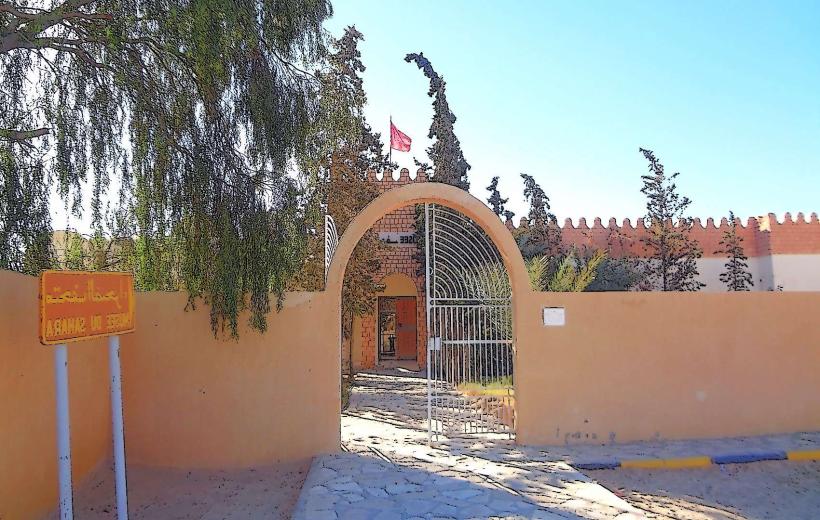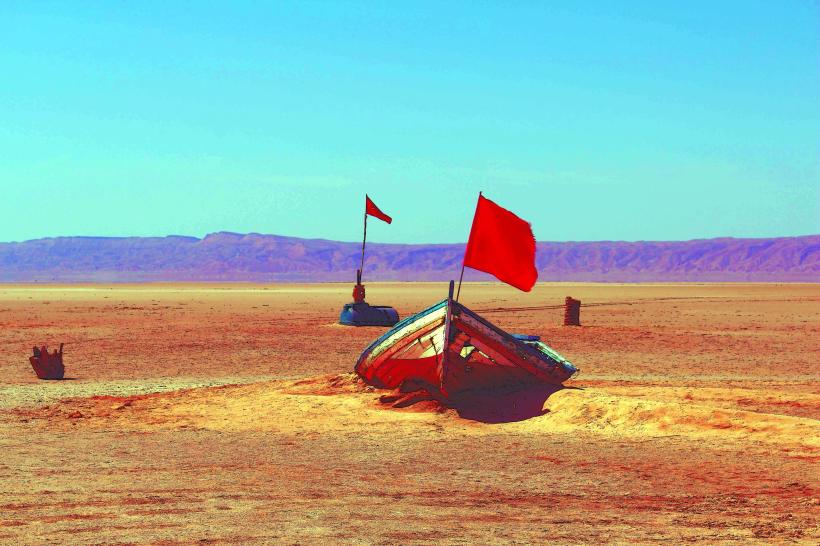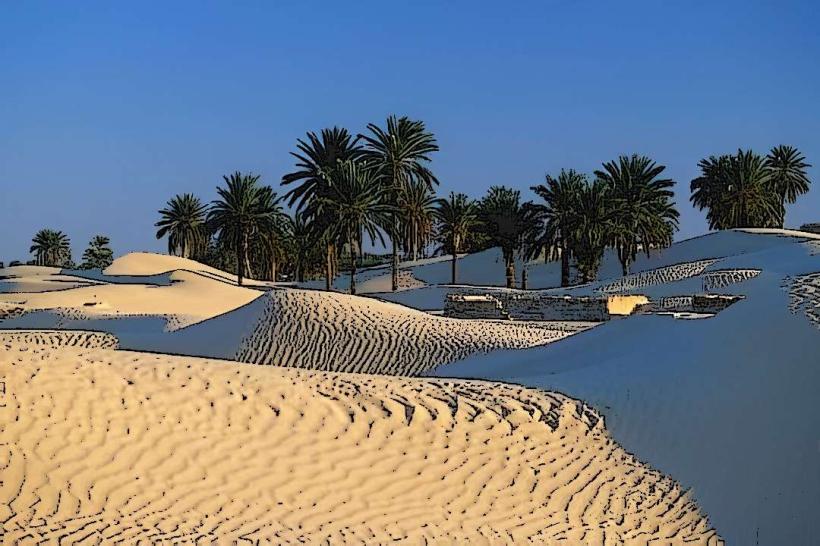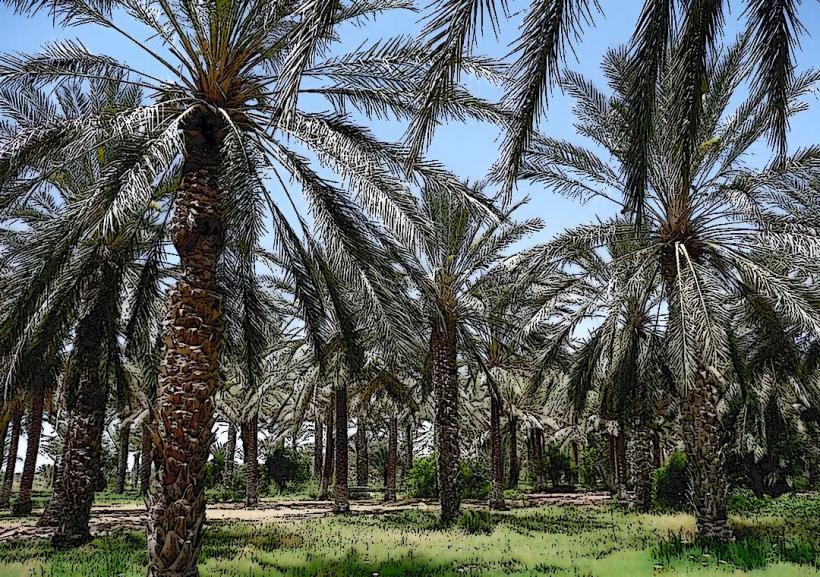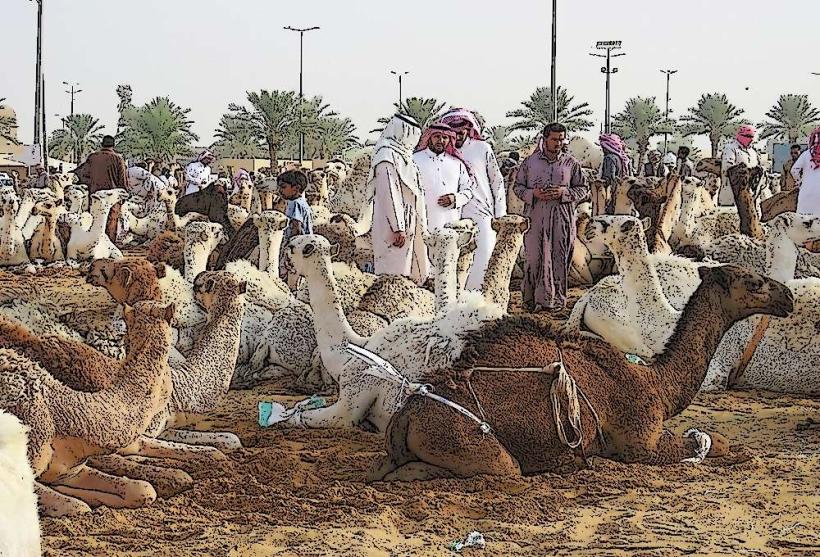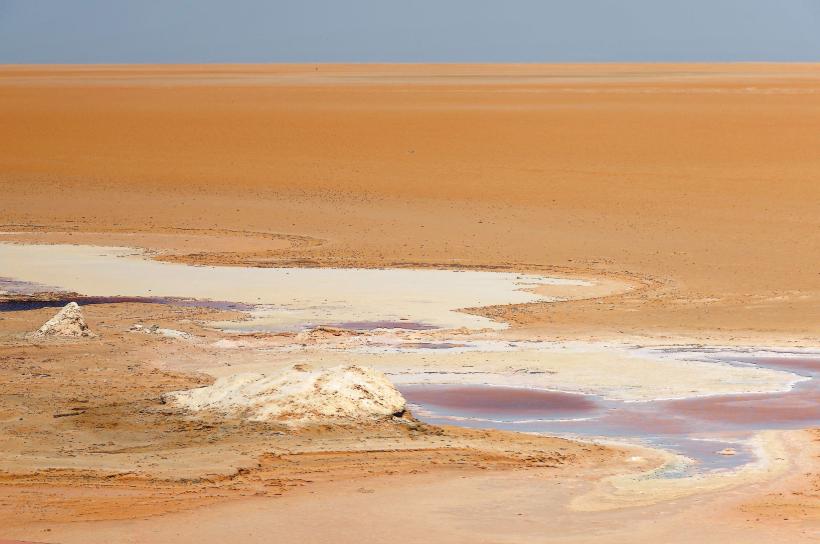Information
Landmark: Kebili Hot SpringsCity: Kebili
Country: Tunisia
Continent: Africa
Kebili Hot Springs, Kebili, Tunisia, Africa
Kebili Hot Springs are natural geothermal water sources located near the oasis town of Kebili, in southern Tunisia. These hot springs are part of the broader hydrological system of the Saharan desert region, where underground thermal activity heats deep aquifers, producing naturally warm waters that surface in and around the Kebili Oasis. They have been valued for centuries for their healing properties, year-round warmth, and essential role in local agriculture and community life.
1. Location and Geography
Situated on the edge of the Kebili oasis, close to the town center and within reach of local palm groves and farms.
The springs arise from deep artesian wells tapping into the subterranean Albian aquifer, one of the largest fossil water reserves in North Africa.
The surrounding landscape is flat and semi-arid, bordered by palm trees, farmland, and sandy plains leading toward the Chott el Jerid salt lake.
2. Water Characteristics
Temperature: Typically ranges between 30°C and 45°C (86°F to 113°F), depending on the season and well.
Mineral Content: Rich in sulfur, calcium, magnesium, and sodium, believed to have therapeutic qualities.
Clarity and Color: The water is often slightly cloudy due to mineral suspension, with a mild sulfuric scent.
3. Historical and Cultural Importance
The hot springs have been used since antiquity, especially by nomadic tribes and oasis dwellers for bathing and healing.
Traditionally, the springs were part of public communal baths, where villagers would gather for hygiene, socialization, and therapeutic treatment.
Local stories and oral traditions often speak of the springs’ healing powers, particularly for joint pain, skin conditions, and respiratory issues.
4. Traditional Uses
Public Baths (Hammams): Historically, natural hot water was channeled into bathhouses or open basins where locals bathed, especially in the cooler winter months.
Domestic Use: Some local homes and farms have access to spring-fed channels for washing clothes, watering animals, or warming homes during the cold desert nights.
Irrigation: Warm spring water is directed into palm groves and gardens during cooler months, helping prevent frost damage to crops and maintaining stable temperatures for plant roots.
5. Health and Wellness Benefits
The hot springs are believed to help with:
Rheumatism and arthritis
Chronic skin conditions like eczema or psoriasis
Circulatory and respiratory issues
Stress relief and relaxation
Many locals and visitors seek the springs for their natural spa-like effects, often sitting in shallow pools or bathing near the water source.
6. Modern Developments and Access
While the hot springs of Kebili are mostly undeveloped compared to commercial spa resorts, there are:
Simple bathing basins or open-air pools, sometimes used communally
A few basic hammams in the area that still utilize spring water
Occasional informal wellness visits by travelers, especially those on desert tours from Douz or Tozeur
Some local guesthouses may offer access to nearby hot spring pools or organize trips to soak in the natural waters, especially during the cooler season (November to March).
7. Environmental Role
The warm waters help maintain the delicate balance of the oasis ecosystem, supporting agriculture and biodiversity.
Natural temperature regulation provided by spring-fed channels helps protect crops like dates, figs, and vegetables.
The hot springs also contribute to wetland patches that support birds, frogs, and other life in an otherwise arid environment.
8. Challenges and Conservation
Over-extraction of groundwater can threaten the flow and sustainability of the springs.
Climate change and decreasing rainfall put pressure on the aquifers feeding the springs.
Pollution and neglect may affect water quality in some communal pools if not properly managed.
Local initiatives have been introduced to encourage eco-tourism and responsible water use, and to promote the springs as part of the region’s natural heritage.
Summary
The Kebili Hot Springs are a quiet but vital natural resource-rich in tradition, health benefits, and ecological importance. Though modestly developed, they offer an authentic experience of Saharan wellness, rooted in centuries of local knowledge and natural harmony. Whether used for bathing, healing, or irrigation, these warm springs represent a precious desert gift in one of Tunisia’s oldest inhabited regions.

